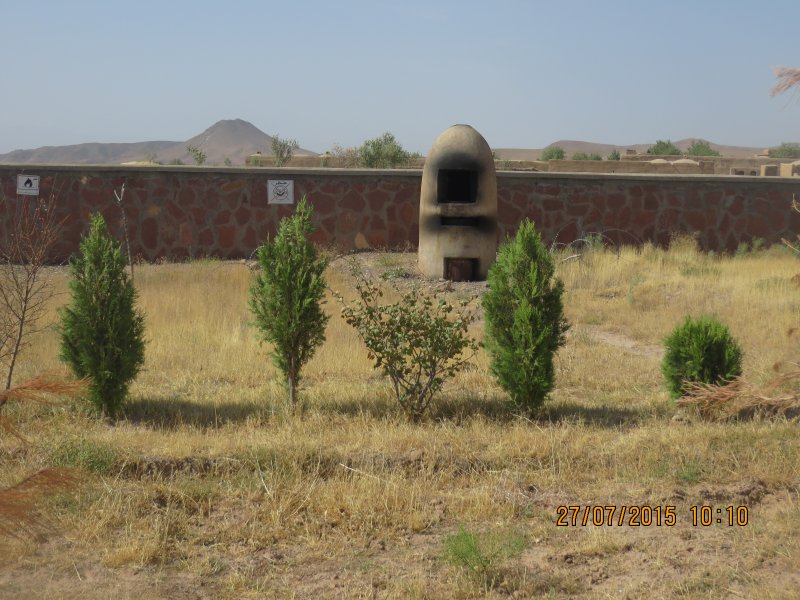1 of 3 | An accessible open-air kiln at one of the U.S.-funded public health facilities operating in western Afghanistan. There are "substantial inaccuracies" in location data and poor maintenance in health facilities supported by the U.S. Agency for International Development in the Afghan region of Herat. Photo courtesy of SIGAR
WASHINGTON, Oct. 28 (UPI) -- There are substantial location "inaccuracies" for nearly two dozen U.S.-funded public health facilities operating in western Afghanistan, possibly putting the medical facilities in the line of fire similar to a deadly incident involving a Doctors Without Borders hospital, the Special Inspector General for Afghan Reconstruction said.
Inspectors found 23 of the 63 U.S. Agency for International Development-supported healthcare facilities in the Afghan province of Herat were up to 10 kilometers, or six miles, from provided location coordinates. Of those, seven were more than five kilometers, or about three miles, from the coordinates. The remaining 16 were located less than three miles from the provided location data.
Special Inspector General John Sopko said of the 40 other medical facilities in Herat, inspectors could only determine that 19 actually existed.
Sopko said correct global-positioning data, or geospatial coordinates, are vital to ensure health facilities located in Afghan regions were providing the local population with needed health services and to offset the chances the facilities will face fire in war-torn areas.
An accessible open-air kiln at one of the U.S.-funded public health facilities operating in western Afghanistan. Photo courtesy of SIGAR
"The recent destruction of the Doctors Without Borders hospital in a battle with the Taliban in Kunduz dramatizes the importance of having accurate GPS coordinates for healthcare facilities," he said, referencing the Oct. 3 United States bombing of the hospital in Afghanistan that killed at least 30 doctors and patients.
Doctors without Borders is known internationally as Médecins Sans Frontières or MSF.
The inspector general's report also found several of the clinics were poorly maintained with no running water or electricity. At least 16 of the 23 facilities had open-air medical waste disposal areas with, in some cases, children playing nearby.
USAID provides funding to support 600 healthcare facilities in 13 Afghan provinces through the World Bank-administered System Enhancement for Health Action in Transition program.
















